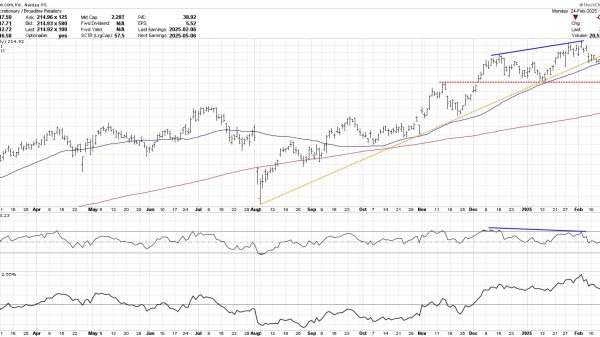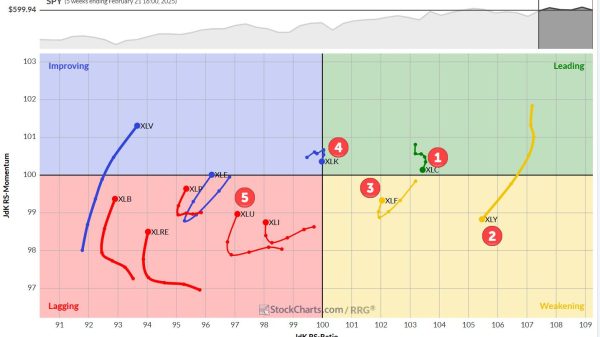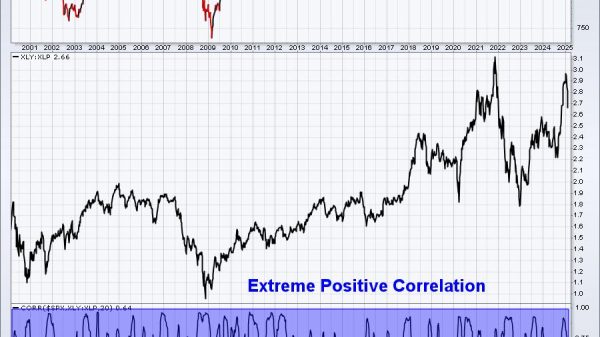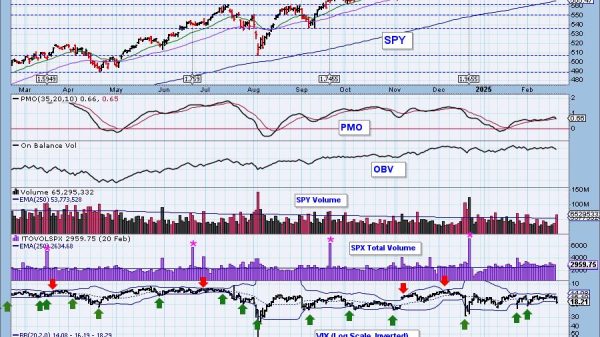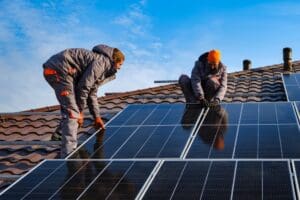Solar energy is one of the most popular renewable energy solutions for homes and businesses. But more people are going solar because of rising electricity costs and because of green concerns.
Nevertheless, a successful solar panel system is largely dependent indeed on its installation. The basic problems of a poorly installed panel include decreased efficiency, safety hazards and expensive fixes.
In this blog, we’ll explore the importance of adhering to strict solar panel installation standards and why they are essential for maximizing performance, ensuring safety, and maintaining long-term reliability. Whether you’re a homeowner or a business owner, understanding these standards can help you make informed decisions and enjoy a worry-free solar experience.
Importance of Following Installation Standards
1. Maximizing System Performance
Proper installation guarantees your solar panels work at the best possible efficiency. To get the maximum sunshine throughout the year, panels must be correctly positioned and angling. A small misalignment… can result in substantial energy loss, consequently lowering the system’s output and deprecates the value of your investment.
2. Ensuring Safety
It’s important to note that solar panels are but a piece of a solar power system which also includes wiring, inverters and in some case batteries. Electricity hazards, fire outbreak and even breakdown of systems would be a result if the installation is not done right. Following installation standards protects your home or business; also helping protect the system for anyone who may use or maintain it.
3. Meeting Regulatory Requirements
A number of regions have located codes and norms that should be called when performing solar installations like neighborhood electrical norms or worldwide norms, for example IEC. It’s not optional — they won’t get permits or qualify for incentives (tax credits, rebates) without it.
The reduction of Maintenance and Repair costs.
If an AC system is installed poorly, chances are, it will have loose wiring, shaky mounting, or water leak into the electrical part of the AC. By following installation standards, you reduce the risk of problems and save on future maintenance and repair costs.
5. Increasing System Lifespan
The solar panels are built to last for 20–25 years if not more. Their proper installation guarantees they are properly installed, protected from the forces of the environment, and working to their optimal efficiency for their lifetime. It keeps your investment while helping to buy into sustainable energy use.
When you follow the below standards you can be in a position to have a high performing, long lasting and a safe solar energy system. Okay next, let’s try to understand the actual components of these standards to help you know what you should be concerned about during installation.
Key Components of Solar Panel Installation Standards
Site Assessment
One of the most frequent mistakes is that the site is not inspected thoroughly before the installation. Grazing from trees, buildings or any other form of shading will affect the production of energy. Key factors include:
Shading: Solar panels need sunlight in order to work at their best. They also consider whether there is some constructible feature that will block the sun rays from reaching the panels such as trees or buildings.
Roof Condition: Because of rooftop installation, roof has to be able to hold the weight of the solar panels and the mounting structures. The old and damaged roofs are what some of the roofs that need to be repaired before an installation encompasses.
Orientation and Tilt: The installers will then decide the most suitable position and orientation of the panels in regards to the climate and latitude of your region.
2. Panel Quality and Certification
The problem is that there is no one way to go about solar panels. If we are to compare the two, it is better to select high quality panels that are IEC or UL approved since this can only mean better performance and durability. All kinds of panels, including the certified ones, have to go through various tests to ensure that they can stand different conditions like heat, wind and hail.
Using panels that meet these standards ensures long-term efficiency and reduces the risk of system failure.
3. Mounting and Alignment
System durability and efficiency are all dependent on proper mounting and alignment. The panels must be secured in place, and secure such, against high winds, snow loads, etc, among other environmental factors. Energy losses may result from incorrect alignment. For example:
Tilt Angle: For maximum energy input, panels should be installed at angle matching your location’s latitude.
Orientation: Most of the time, south facing is best in the northern hemisphere for maximum sun exposure.
Electrical Safety Standards
Any solar installation is incomplete if you do not implement electrical safety. Staying in compliance with standards assures inverters, wiring, and grounding systems are all properly connected and working together, to avoid hazards or faults, and help keep those you care about connected with you. Installers must:
Use certified inverters which are meeting the local regulations.
Protect yourself from electrical shock and fires by following the proper grounding practices.
Local electrical codes such the National Electrical Code (NEC) apply in the US.
Following these elements means a reliable, effective, and safe solar energy system.
Regional and International Standards
1. Overview of Key Standards
Different regions have established their own guidelines to regulate solar panel installations, ensuring consistency and safety. Some key standards include:
ISO Standards: International standards that cover the quality and safety of solar equipment and installations.
National Electrical Code (NEC): Widely used in the US for solar system wiring and safety protocols.
European Union Regulations: Countries within the EU follow stringent guidelines to ensure panel efficiency and environmental compliance.
2. Role of Local Guidelines
While international standards provide a broad framework, local guidelines address specific environmental and infrastructural factors. For instance:
In areas with heavy snow or strong winds, mounting systems must meet higher durability standards.
Hot regions may require panels tested for high-temperature performance.
3. Differences in Practices
Standards can vary significantly by region. For example:
Some countries require fire safety certifications for rooftop installations.
Others may prioritize minimizing visual impact or integrating panels into building designs.
Understanding regional and international standards helps you verify if your system meets all necessary requirements for efficiency, safety, and incentives.
Common Issues and How to Avoid Them
1. Poor Site Assessment
One of the most frequent mistakes is that the site is not inspected thoroughly before the installation. Grazing from trees, buildings or any other form of shading will affect the production of energy. Additionally, a weak roof structure can lead to long-term damage or safety hazards.
Solution: Always hire a professional to conduct a thorough site evaluation, including sunlight analysis and roof condition checks.
2. Incorrect Panel Placement
Improper alignment, tilt, or orientation can result in reduced efficiency. Panels that are not securely mounted may also be vulnerable to wind damage or shifting over time.
Solution: Follow regional guidelines for optimal panel placement, such as south-facing alignment in the northern hemisphere, and ensure mounting systems are properly installed.
3. Faulty Wiring and Grounding
Substandard electrical work is a potential source of inefficiency, danger, or even fire disaster in a given system. One of the biggest problems in poor quality wiring systems is poor or unsafe connections of the wires.
Solution: Ensure that installers use certified components and comply with local electrical codes to meet safety standards.
4. Lack of Compliance with Standards
Skipping adherence to local and international standards can lead to legal issues, voided warranties, or rejection of permits and incentives.
Solution: Confirm that your contractor is certified and familiar with the necessary standards in your region.
5. Neglected Maintenance Planning
Some systems fail prematurely due to a lack of maintenance planning, such as cleaning panels or checking for loose connections.
Solution: Opt for installers who provide a maintenance guide or offer ongoing support services.
Avoiding these common mistakes ensures a high-performing and trouble-free solar panel system.
The Benefits of Compliance with Installation Standards
Improved Efficiency
If panels are installed according to accepted standards, they are at peak efficiency and capture the maximum amount of sunlight and convert it into energy. Thus, you get the most out of your investment.
Enhanced Safety
This ensures safety in compliance with safety standards minimizing electrical faults, fire and system malfunctions. A safe system for users and technicians is a well installed one.
Access to Incentives
There are countless governments that provide tax credits, rebate, and other incentives for solar installations. But these benefits are usually contingent upon a standard being met. You only qualify for these programs if you install properly.
Longer System Lifespan
Quality installations protect your solar panels so that they don’t wear out for decades as the environment damages them. It minimizes replacement costs, and maximizes return on investment.
Legal and Warranty Protection
When systems get installed to code, they are less likely to fail an inspection and have to be replaced, less likely to have a legal issue, and are more likely to stay under manufacturer warranty.
For example non compliant installations can void warranties so that you are responsible for repair or replacement costs.
Positive Environmental Impact
The efficient systems generate more clean energy thereby reducing dependence on fossil fuels and lowering your carbon footprint. A more sustainable future is ensured by following standards.
Meeting these standards not only protects your investment, but also assures safe and sustainable solar adoptions.
Tips for Choosing a Reliable Solar Installer
Check for Certifications
Look for installers certified by reputable organizations such as:
NABCEP (North American Board of Certified Energy Practitioners): A much recognized credential for solar professionals.
Validation bodies in your area that are regional licensing or certification bodies.
To follow installation standards and that is certified installers are trained.
Read Reviews and Testimonials
The kind of installer that presents well, but has online reviews and customer testimonials that are not good is unlikely to be very reliable and not do good quality work. Look for feedback on:
Timeliness of installation.
Materials and workmanship.
After-installation support plus customer service.
3. Ask About Warranties
A reliable installer should offer warranties for both the equipment and the installation itself. Common warranties include:
Panel warranty: Typically 20–25 years.
Workmanship warranty: Covers installation errors, usually 5–10 years.
4. Compare Multiple Quotes
Don’t settle for the first quote you receive. Compare offers from multiple installers to ensure you get competitive pricing and a clear understanding of what’s included.
5. Verify Adherence to Standards
Ask potential installers how they ensure compliance with local and international installation standards. They should be knowledgeable about:
Electrical codes.
Mounting and safety requirements.
Regional regulations and permitting processes.
6. Evaluate Post-Installation Support
A good installer will provide ongoing support, such as:
Maintenance services.
System performance monitoring.
Quick responses to troubleshooting issues.
Choosing the right installer ensures a smooth, stress-free experience and a well-functioning solar energy system.
Conclusion
Investing in solar panels is a big step towards saving money and protecting the environment. However, the success of your system depends on proper installation and strict adherence to standards. Frustratingly, solar panels can fail, unexpectedly dispose of the sun’s energy, and keep you wondering if you were conned or their presents really were a gift. With this article, you’ll be able to make sure your solar panels will work continuously, safely, and efficiently for as long as possible.
Unless you hire a certified, experienced installer who leans towards industry standards, you must always choose the ones who follow industry standards. Furthermore, it helps protect your investment and you have the real opportunity to use all the incentives and warranties. But remember, a high quality install is not a one off benefit, the installation is also a long term commitment to clean energy and sustainability! It might save us all money down the line.
There is something to be said about research and planning your solar installation. On the flip side energy savings, peace of mind and a greener future are on the other side of that effort.












